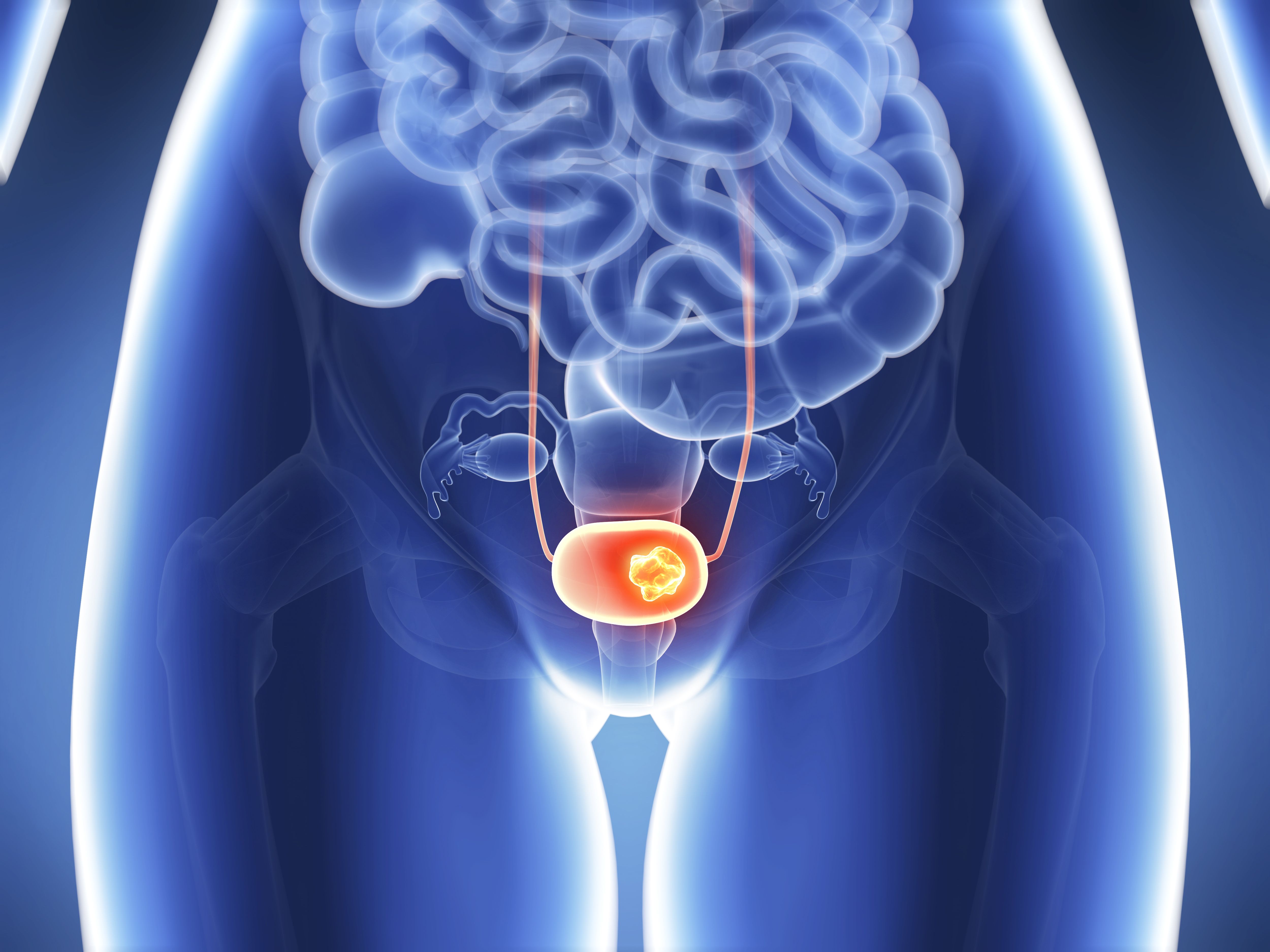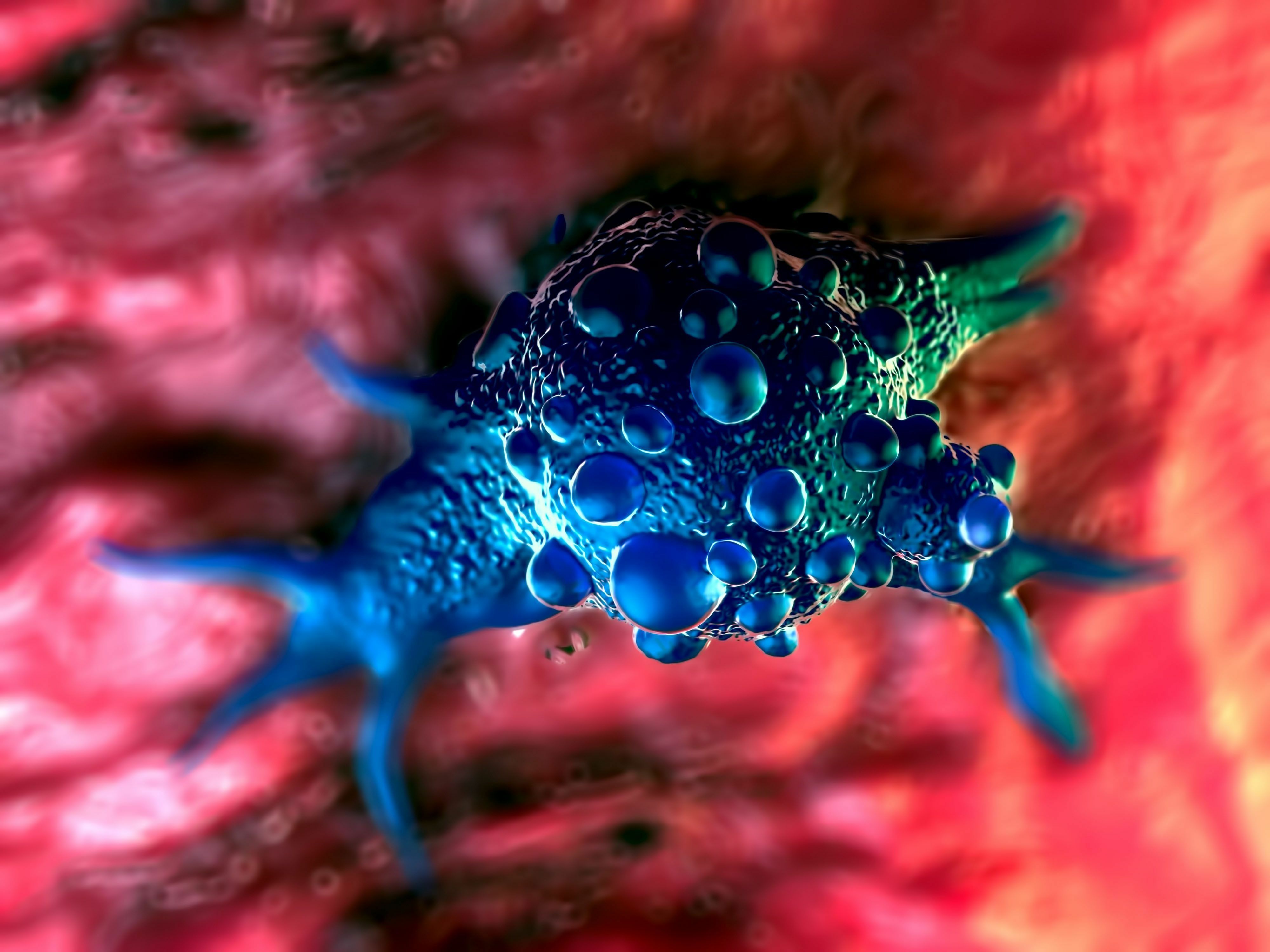FDA Accepts BLA Resubmission of N-803/BCG for NMIBC
After issuing a complete response letter in May 2023, the FDA has now accepted the resubmission of the biologics license application of a drug regimen for the treatment of non-muscle-invasive bladder cancer.
3D rendering of bladder cancer: ©SciePro - stock.adobe.com

- The biologics license application (BLA) for N-803 plus Bacillus Calmette–Guérin in patients with high-risk non-muscle-invasive bladder cancer (NMIBC) was resubmitted to the FDA on October 23, 2023.
- N-803 is currently being evaluated in adult patients in 2 clinical trials for the treatment of NMIBC.
- The FDA has set a user fee goal date (PDUFA date) of April 23, 2024.
The FDA accepted the BLA resubmission for N-803 and BCG for the treatment of BCG-unresponsive NMIBC carcinoma in situ (CIS) with or without Ta or T1 disease. The FDA has issued a target action date of April 23, 2024.1
The FDA issued a complete response letter to ImmunityBio, the manufacturer, regarding its BLA submission in May 2023. The letter cited insufficient inspection of a third-party manufacturer, and ImmunityBio needed to resolve the observations before the BLA would be reviewed. There were no safety or efficacy issues noted with the drug regimen.
Two clinical trials are evaluating N-803 and BCG for the treatment of NMIBC.
QUILT-2.005 (NCT02138734) is a phase 1/2 trial investigating N-803 and BCG in patients with BCG-naïve NMIBC.2 The trial has an estimated enrollment of 596 patients. The primary end points are complete response (CR) and disease-free survival (DFS). The secondary end points are progression-free survival, overall survival, disease-specific survival, time to disease worsening, time to cystectomy, and safety profile.
Patients in the experimental arm received a combination of N-803, BCG, and saline, and the combination is administered in an intravesical instillation weekly for 6 weeks. The active comparator arm received BCG alone weekly for 6 weeks. Both arms received a maintenance treatment of their respective regimens for 3 consecutive weeks at 3, 6, 12, and 18 months.2
Bladder cancer cells: ©PRB ARTS - stock.adobe.com

QUILT-3.032 (NCT03022825) is a phase 2/3 trial investigating N-803 and BCG in patients with BCG-unresponsive NMIBC CIS and papillary disease.3 The trial has an estimated enrollment of 190 patients. The primary end points are CR and disease-free rate. The secondary end points are duration of CR, DFS, and CR and disease-free rate at 6, 9, 12, 18, and 24 months.
One cohort received BCG and N-803 mixed with saline, which is administered in an intravesical instillation weekly for 6 weeks. The second cohort received N-803 alone in an intravesical instillation weekly for 6 weeks. Patients received maintenance therapy as eligible.3
About N-803
According to ImmunityBio, N-803 is a novel investigation IL-15 superagonist. It consists of an IL-15 mutant bound to an IL-15 receptor α/IgG1 Fc fusion protein. The proposed mechanism of action is direct specific stimulation of CD8+ T and natural killer cells through beta gamma T-cell receptor binding with generation of memory Tcells yet avoiding T-reg stimulation. N-803 was designed to have optimized pharmacokinetic properties, more persistence in lymph tissue, and enhanced antitumor activity compared with native IL-15.1
About BCG
BCG is a live, attenuated strain of Mycobacterium bovis and is, at present, the only FDA-approved agent for primary therapy of bladder CIS. Therapy with BCG can also reduce the risk of disease recurrence, and maintenance with BCG can reduce the risk of disease progression in patients with high-grade NMIBC.4